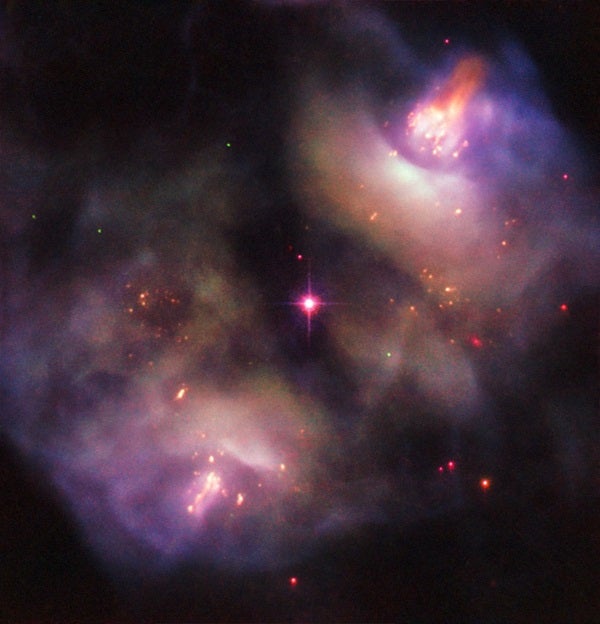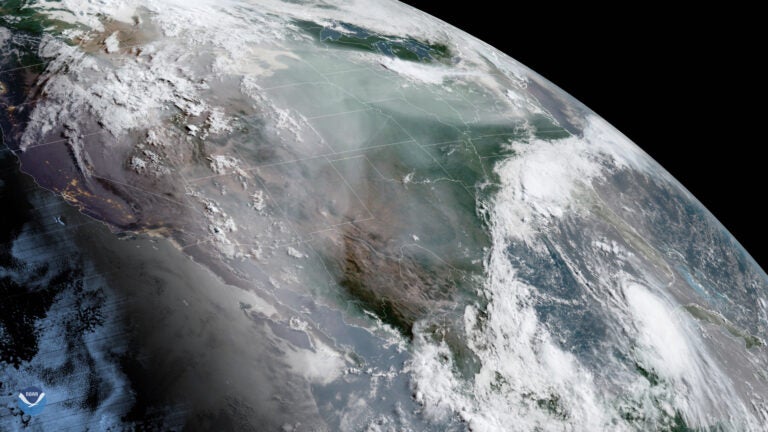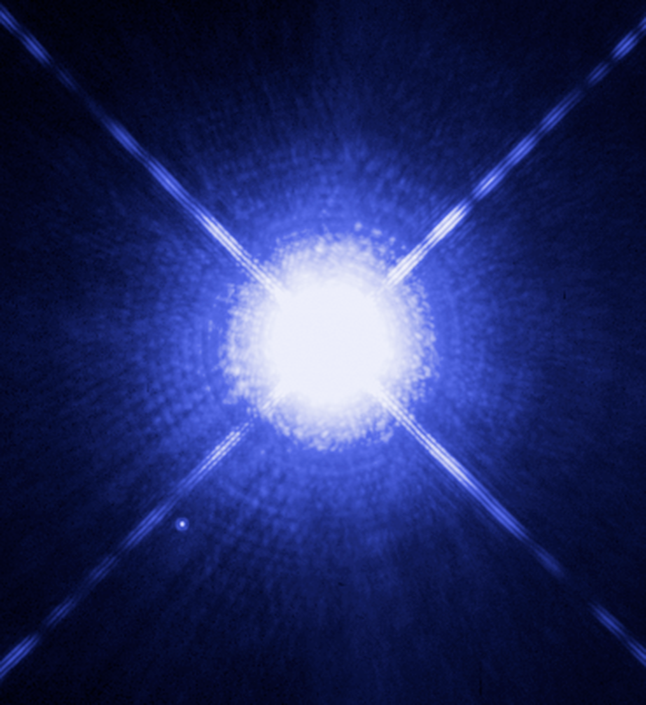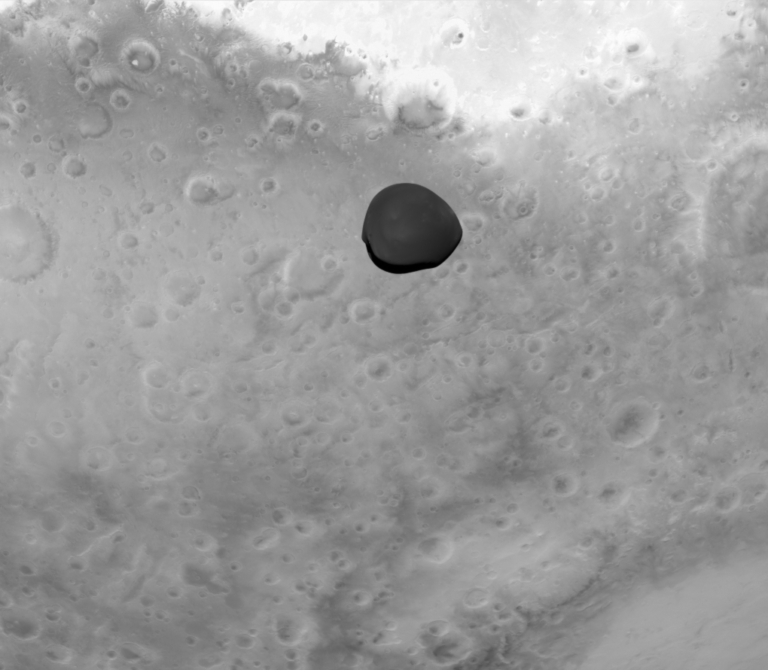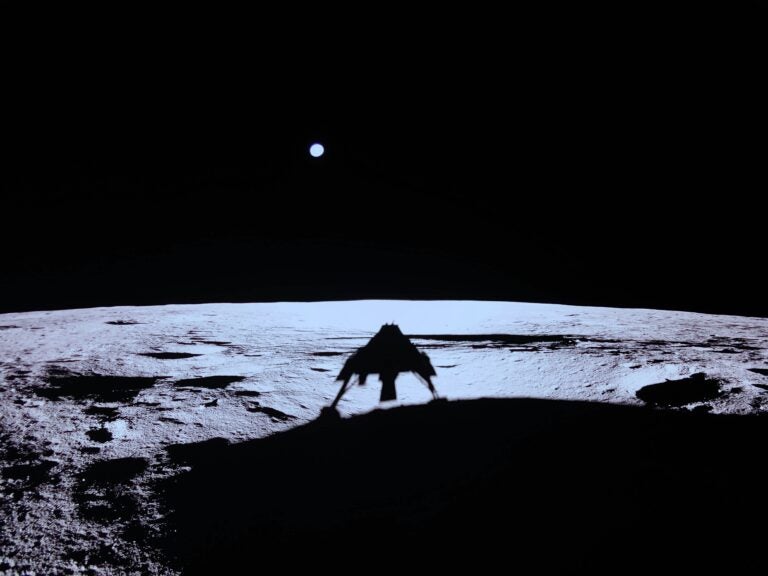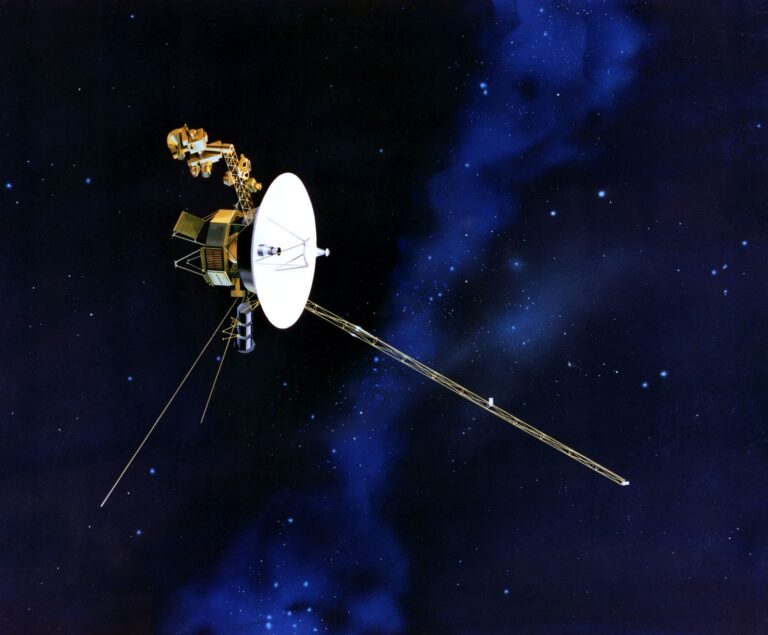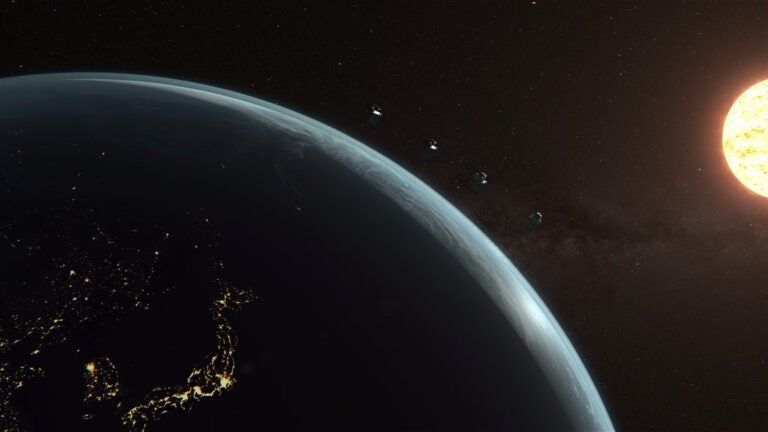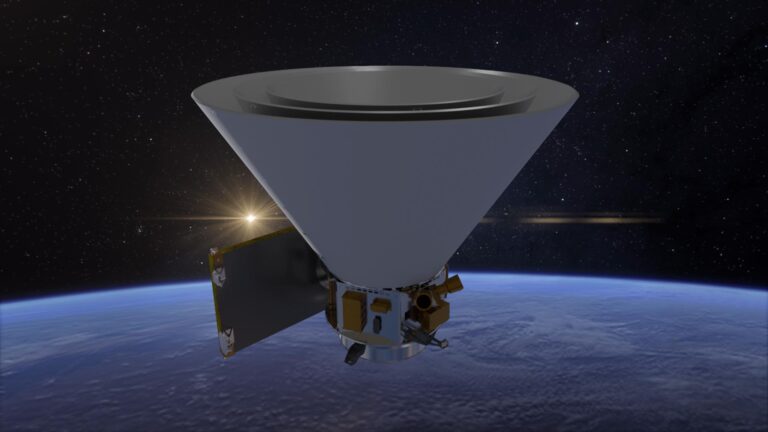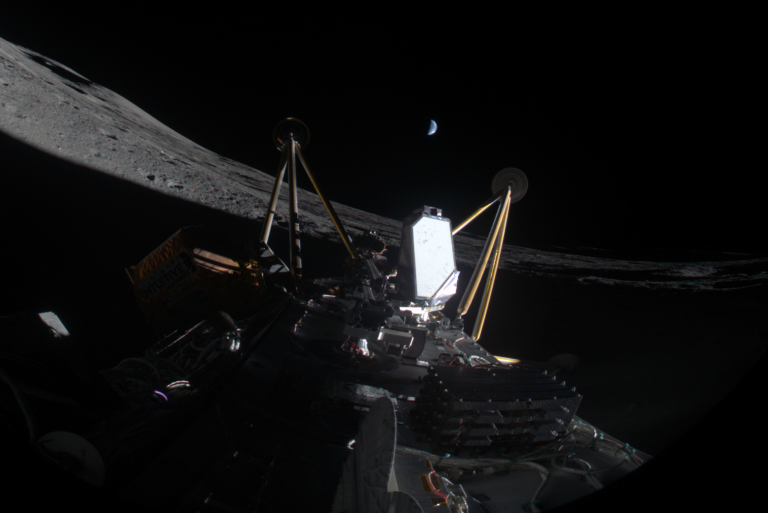At first, astronomers thought the dying star system was two objects instead of just one. The planetary nebula — a shell of gasses surrounding the star — has a symmetrical structure that makes it look like two suns died. You can see that duality in the upper left and the lower right on the photo. NGC 2371/2 consists of a Sun-like star, which blasted off its outer layers after its death. The outer layers pushed out into space, leaving behind the star’s hot remains.
And the entire system glows as the dying star’s radiation interacts with galactic dust. Eventually this star will cool, forming a white dwarf, and the lobes will dissipate completely. One day, our own Sun is fated to turn into a dying white dwarf as well

